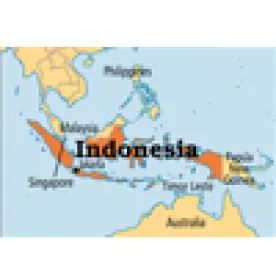Last month, the Supreme Court of Indonesia announced its decision canceling two of Swedish furniture giant IKEA’s trademark registrations for its brand name in International Trademark Classes 20 (furniture) and 21 (household containers), and declaring that a local company had superior rights to the mark in those Classes. The decision underscores the importance for companies with multinational trademark portfolios to make sure they actually use their marks in each jurisdiction or, if they do not, to punctually re-file new trademark applications for unused marks. It is especially important to carefully monitor trademark portfolios in many jurisdictions in Asia and Latin America, where permissive rules and lack of oversight increase the risk that bad-faith applicants may attempt to register multinational companies’ well-known marks.
IKEA opened its first Indonesian store outside of Jakarta in October 2014. However, it has long maintained an Indonesian trademark portfolio comprising dozens of registrations. IKEA filed its first Indonesian trademark applications for its IKEA mark in Classes 20 and 21 in 2005. These applications matured into registrations in 2006 (Class 21) and 2010 (Class 20). In Indonesia, as in many jurisdictions worldwide, a mark owner is not required to show use of the mark in commerce in that jurisdiction as a requirement for registration. However, if the mark owner fails to make use of the mark for a period of three years, the registration is vulnerable to cancellation if challenged.
In 2012, IKEA filed additional applications in Classes 20 and 21 to register versions of its marks that included yellow-and-blue and black-and-white design elements. These filings likely represented an effort to bolster IKEA’s protection by gaining new registrations that would not be vulnerable to cancellation for nonuse for another three years, while maintaining the existing registrations for their 2005 priority dates. The 2012 applications matured into registrations on September 19, 2014.
In the meantime, however, on December 20, 2013, Indonesian rattan furniture company PT Ratania Khatulistiwa (“Ratania”) filed applications for its own IKEA trademark, which is an acronym for Intan Khatulistiwa Esa Abadi, a reference to palm rattan. Ratania’s applications covered home furniture and other objects of rattan in Class 20, and household and kitchen utensils and containers in Class 21. Four days later – presumably before the Indonesian Trademark Office was able to examine the applications and potentially issue a rejection based on IKEA’s registrations and/or pending applications – Ratania sued IKEA in the Central Jakarta District Court to cancel IKEA’s existing registrations in those classes.
The District Court found that IKEA’s 2006 and 2010 registrations should be canceled because IKEA failed to make use of the mark for three consecutive years after registration. A three-judge panel of the Indonesian Supreme Court upheld the ruling in a 2-1 decision. In a rare dissent, the third judge argued that the nonuse provision should not apply to a company such as IKEA because it was the proven owner of a legitimately registered and well-known trademark. Both courts ruled that Ratania’s applications were filed in good faith despite evidence that Ratania knew of IKEA and its mark, illustrating the risk of relying on prohibitions in some jurisdictions against bad-faith applications for internationally famous marks.
Despite the ruling, IKEA plans to continue its Indonesian operations as usual. IKEA will rely on its dozens of remaining Indonesian trademark registrations, including its 2014 registrations in Class 20 and 21 that resulted from its prudent filing of additional applications. This case illustrates the value of monitoring your international trademark portfolio and bolstering your protection against cancellation, especially in jurisdictions with a substantial risk of bad-faith trademark squatting and piracy.




 />i
/>i
